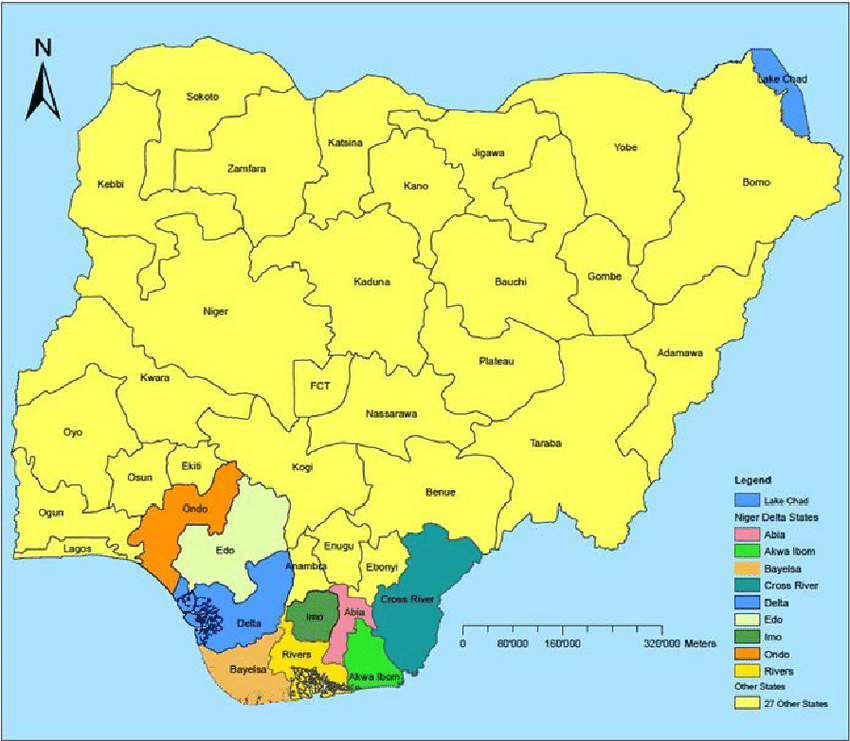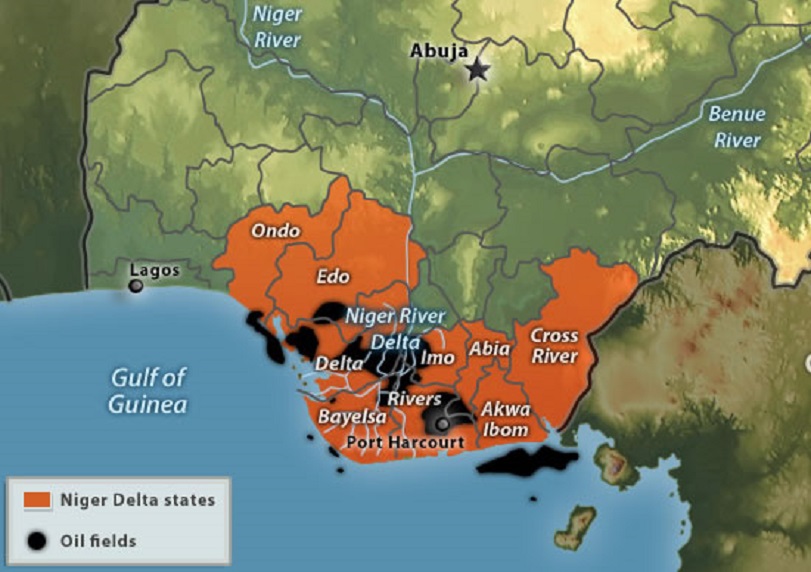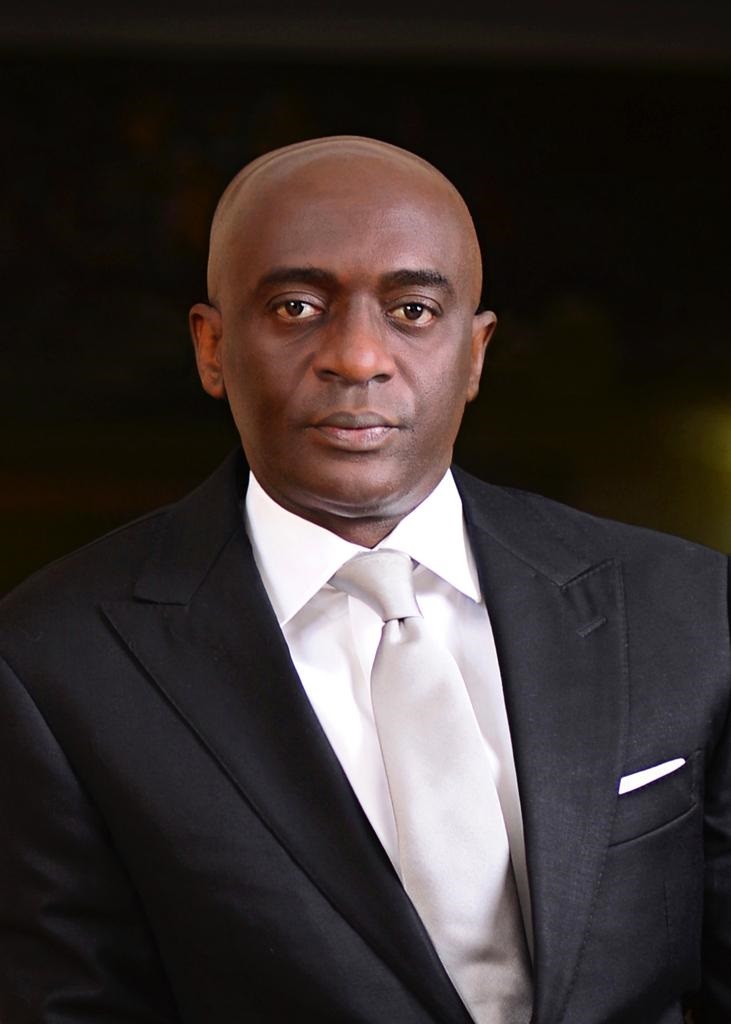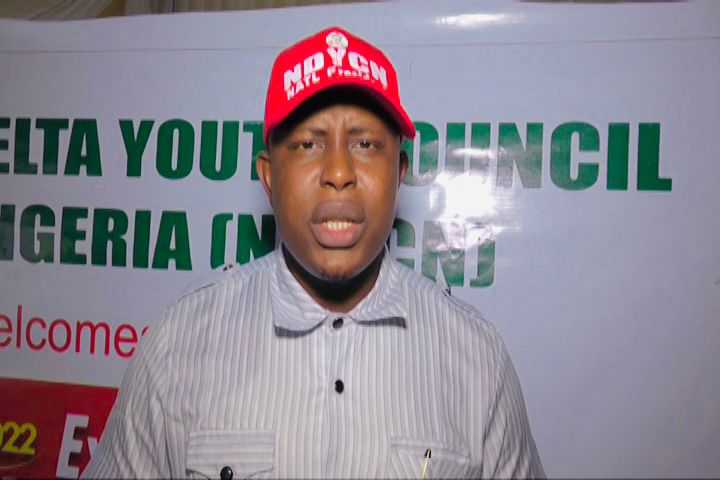Feature/OPED
Niger Delta, NHRC and PIB

By Jerome-Mario Utomi
I never had expected that opinion articles about the Niger Delta, a region bedevilled by tremendous odds with an improbable chance of survival, will precisely in a space of four days come from me in this quick succession as I have other pressing concerns to comment on.
But this particular one stems from a reaction by a reader to the earlier one entitled Why Niger Delta is troubled. The piece, which had the resonated chant of a crude oil spill in Polobubo/Opuama Communities, Warri North Local Government Area of Delta as its central plot, among other things, classified the critical issues confronting the region as follows.
First, the existence of multiple but an absolute regulatory framework that characterises the oil and gas exploration and production in Nigeria and fuels International Oil Companies (IOCs’) reluctance to adhere strictly to the international best practices as it relates to their operational environment.
Secondly, the unwillingness of successive administrations to identify the Niger Delta as a troubled spot that must be regarded as a special area for purposes of development-as recommended by the colonial government long before independence.
While commending efforts made by the people of Polobubo/Opuama community, particularly lawyers under the umbrella of the Gbaramatu Lawyers Association (Gbaramatu Oloutomo-Abu Gbolei), who in an open letter dated March 8, 2021, issued a 14-day ultimatum to the owners of the facility to address the present challenge, the said reader (mentioned above) lamented that such efforts will continue to be frustrated by both national and foreign media as they will not accord it the needed attention/prominence.
He, therefore, advised that to make such an effort most rewarding, the community should approach/ petitions National Human Right Commission (NHRC).
NHRC, he explained, was established by the National Human Right Act 1995, to; create an enabling environment for extra-judicial recognition, promotion, protection and enforcement of human rights, in addition to providing a forum for public enlightenment and dialogue on human rights while facilitating the implementation of Nigeria’s various international and regional treaty obligations on human rights issues.
Though I was totally disoriented by his position on the National Human Rights Commission, I tried not to betray my disagreement with such position. Alas! I could not pretend for too long that I was flowing for he soon observed the utter confusion and frustration raging in my mind.
To douse the nagging helplessness enveloping me as regards his suggestion about going to NHRC, I explained to him that the reservation in my view does not reflect a lack of respect for the Commission. Rather, it is predicated on the memories of their not too deeds towards the region which about a year ago formed a similar intervention, entitled; Re-thinking the National Human Rights Commissions (NHRC) roles in the Niger Delta.
As a background, the plight of the people of the Niger Delta region explains a painful consequence of prostrated neglect and low investments in the region by our leaders and in order words, act as an essential step towards understanding action-decision, or error of judgment that currently perpetuates poverty, consolidates powerlessness and promotes restiveness in the region.
In the same vein, there are many institutional failures that have kept the region on its knees.
But among these failures, the inability of the National Human Rights Commission to rise onto its constitutional responsibility to the people of the region. A failure that has resulted in the generation of misinformation, disinformation, innuendos, falsehood and outright assault on reason(s) fuelling the backward nature of the Niger-Delta regions.
Notably, so many families in the region have witnessed so many disappointing moments as a result of the government’s insensitivity. The government on its part has made so many speeches and excuses without adopting or abiding by the basic principles that helped other nations grow in social cohesion or through equitable sharing of benefits from the mineral deposits from the region.
And in the face of these verifiable violations and deprivations, the National Human Rights Commission failed to inform the government that it is only through equity, justice, and restructuring of the nation that the country would enjoy economic and social progress that flows from stability.
The stunning thing about the commission’s inaction is that it is happening when the global community is aware that communal rights to a clean environment and access to clean water supplies are being violated in the region, with aquifers and other water supply sources being adversely affected by industrial or other activities without the communities being adequately compensated for their losses. And the oil industry by its admission has abandoned thousands of polluted sites in the region which need to be identified and studied in details.
Shockingly ‘interesting’ is that despite the not too impressive performance of NHRC, The commission is not without supporters.
While many argue that the commission cannot be blamed for environmental woes resulting from oil exploration and production in the Niger Delta region as the agency cannot investigate without complaint or petition from either group or individual- as wading in without invitation amounts to descending into the arena.
Some expressed the views that the plight of the Niger Deltans resulting from faulty/weak legal framework should be directed to the National Assembly as the commission is not the legislative arm of the government.
To others, expecting the commission to enforce compliance will translate to waiting till eternity as they are neither staffed with security operatives like the Economic and Financial Crimes Commission (EFCC) nor equipped with technical knowledge like the Federal Ministry of environment, to detect when organisations are not applying international best practices in their operations.
Though clear enough, this point cannot hold water when faced with a number of embarrassing facts.
Fundamentally, separate from the belief that ‘the environment is as important to the nation’s well-being as the economy and should deserve similar attention, their arguments remain sophistry looking at the functions and powers of the commission as provided in Section 5 of its enabling Act.
It provides that the commission shall deal with all matters relating to the promotion and protection of human rights as guaranteed by the constitution of the Federal Republic of Nigeria and other human rights instruments to which Nigeria is a party; Monitor and investigate all alleged cases of human rights violations in Nigeria and make appropriate recommendation to the federal government for the prosecution and such other actions as it may deem expedient in each circumstance. And assist victims of human rights violation to seek appropriate redress and remedies on their behalf.
Admittedly, NHRC may not have the power to make laws as argued by some commentator, but it can engineer people-purposed oil exploration and production regime by collaborating with the National Assembly through sponsorship of Bills and Memoranda; NHRC may be technically disempowered to investigate or detect operators non-adherence to the international best practice, but have the power to productively partner with other government Ministries and agencies that perform this task both effectively and efficiently; the Commission may not be capped with the task force to enforce standards, but can assist communities where such violation has taken place with legal actions against such violator. The vitality of such support will enrich litigation in favour of the communities; deepen the respect for the Commission among the operators while lifting litigation cost from communities.
There are other similar but separate examples.
Without going into specifics, concepts, provisions and definitions, it’s been identified that oil exploration and production in Nigeria are guided by so many laws. Yet, available data and our mind’s eye testify that these laws/Acts in question are no longer achieving their purpose.
Against this backdrop, Nigerians would have expected NHRC as a responsive and responsible organization to ask; if truly these laws are fundamentally effective and efficient, why are they not providing a strong source of remedy for individuals and communities negatively affected by oil exploration and production in the coastal communities as the lives of the people in that region currently portrays? If these frameworks exist and have been comprehensive as a legal solution to the issues of oil-related violations, why are they not enforceable?
While the watching world expects answers to these questions, this piece, believes that signing the Petroleum Industry Bill (PIB) and not NHRC will save the region.
To explain this fact, going by what industry watchers are saying, the Bill, if passed to law, will engineer the development of host communities in ways that entail all-encompassing improvement, brings a process that builds on itself and involves both individuals and social change. Attracts growth and structural change, with some measures of distributive equity, modernization in social and cultural attitudes, foster a degree of transformation and stability, bring an improvement in health and education and an increase in the quality of lives and employment of the people.
This claim is ‘more pronounced in sections on community relations provisions such as Section 241 which among other provisions mandates that Settlors (a holder of an interest in a petroleum prospecting licence or petroleum mining lease or a holder of an interest in a licence for midstream petroleum operations, whose area of operations is located in or appurtenant to any community or communities) shall incorporate a trust for the benefit of the host communities.
The constitution of each host community development trust, the bill added, shall provide that the applicable host community development trust fund be used exclusively for the implementation of the applicable host community development plan.
There is also another ingrained way of how the Bill will assist in clearing the Augean Stable in the Niger Delta. This has to do with the Prohibition of Gas Flaring in section 104. Going by its provisions, the Bill in a bid to fulfil its obligations under the United Nations Framework Convention on Climate Change (UNFCCC) and similar conventions, demands strict adherence to a gas flaring plan.
A licensee or lessee, it explained, producing natural gas is expected to, within 12 months of the effective date; submit a natural gas flare elimination and monetization plan to the commission, which shall be prepared in accordance with regulations made by the commission under this Act. A Licensee or Lessee who fails to adhere to the provision shall pay a penalty prescribed pursuant to the Flare Gas (Prevention of Waste and Pollution) Regulations.
With these and other provisions, there is no doubt that if the Federal Government is interested in serving and saving the people of the Niger Delta region, they are left with no other option than to pass and sign the PIB to law.
Since its objectives will foster sustainable prosperity within host communities and provide direct social and economic benefits from petroleum operations to host communities while enhancing peaceful and harmonious co-existence among licensees or lessees and host communities.
Jerome-Mario Utomi is the Programme Coordinator (Media and Public Policy), Social and Economic Justice Advocacy (SEJA), Lagos. He could be reached via je*********@***oo.com or 08032725374.
Feature/OPED
How Christians Can Stay Connected to Their Faith During This Lenten Period

It’s that time of year again, when Christians come together in fasting and prayer. Whether observing the traditional Lent or entering a focused period of reflection, it’s a chance to connect more deeply with God, and for many, this season even sets the tone for the year ahead.
Of course, staying focused isn’t always easy. Life has a way of throwing distractions your way, a nosy neighbour, a bus driver who refuses to give you your change, or that colleague testing your patience. Keeping your peace takes intention, and turning off the noise and staying on course requires an act of devotion.
Fasting is meant to create a quiet space in your life, but if that space isn’t filled with something meaningful, old habits can creep back in. Sustaining that focus requires reinforcement beyond physical gatherings, and one way to do so is to tune in to faith-based programming to remain spiritually aligned throughout the period and beyond.
On GOtv, Christian channels such as Dove TV channel 113, Faith TV and Trace Gospel provide sermons, worship experiences and teachings that echo what is being practised in churches across the country.
From intentional conversations on Faith TV on GOtv channel 110 to true worship on Trace Gospel on channel 47, these channels provide nurturing content rooted in biblical teaching, worship, and life application. Viewers are met with inspiring sermons, reflections on scripture, and worship sessions that help form a rhythm of devotion. During fasting periods, this kind of consistent spiritual input becomes a source of encouragement, helping believers stay anchored in prayer and mindful of God’s presence throughout their daily routines.
To catch all these channels and more, simply subscribe, upgrade, or reconnect by downloading the MyGOtv App or dialling *288#. You can also stream anytime with the GOtv Stream App.
Plus, with the We Got You offer, available until 28th February 2026, subscribers automatically upgrade to the next package at no extra cost, giving you access to more channels this season.
Feature/OPED
Turning Stolen Hardware into a Data Dead-End

By Apu Pavithran
In Johannesburg, the “city of gold,” the most valuable resource being mined isn’t underground; it’s in the pockets of your employees.
With an average of 189 cellphones reported stolen daily in South Africa, Gauteng province has become the hub of a growing enterprise risk landscape.
For IT leaders across the continent, a “lost phone” is rarely a matter of a misplaced device. It is frequently the result of a coordinated “snatch and grab,” where the hardware is incidental, and corporate data is the true objective.
Industry reports show that 68% of company-owned device breaches stem from lost or stolen hardware. In this context, treating mobile security as a “nice-to-have” insurance policy is no longer an option. It must function as an operational control designed for inevitability.
In the City of Gold, Data Is the Real Prize
When a fintech agent’s device vanishes, the $300 handset cost is a rounding error. The real exposure lies in what that device represents: authorised access to enterprise systems, financial tools, customer data, and internal networks.
Attackers typically pursue one of two outcomes: a quick wipe for resale on the secondary market or, far more dangerously, a deep dive into corporate apps to extract liquid assets or sellable data.
Clearly, many organisations operate under the dangerous assumption that default manufacturer security is sufficient. In reality, a PIN or fingerprint is a flimsy barrier if a device is misconfigured or snatched while unlocked. Once an attacker gets in, they aren’t just holding a phone; they are holding the keys to copy data, reset passwords, or even access admin tools.
The risk intensifies when identity-verification systems are tied directly to the compromised device. Multi-Factor Authentication (MFA), widely regarded as a gold standard, can become a vulnerability if the authentication factor and the primary access point reside on the same compromised device. In such cases, the attacker may not just have a phone; they now have a valid digital identity.
The exposure does not end at authentication. It expands with the structure of the modern workforce.
65% of African SMEs and startups now operate distributed teams. The Bring Your Own Device (BYOD) culture has left many IT departments blind to the health of their fleet, as personal devices may be outdated or jailbroken without any easy way to know.
Device theft is not new in Africa. High-profile incidents, including stolen government hardware, reinforce a simple truth: physical loss is inevitable. The real measure of resilience is whether that loss has any residual value. You may not stop the theft. But you can eliminate the reward.
Theft Is Inevitable, Exposure is Not
If theft cannot always be prevented, systems must be designed so that stolen devices yield nothing of consequence. This shift requires structured, automated controls designed to contain risk the moment loss occurs.
Develop an Incident Response Plan (IRP)
The moment a device is reported missing, predefined actions should trigger automatically: access revocation, session termination, credential reset and remote lock or wipe.
However, such technical playbooks are only as fast as the people who trigger them. Employees must be trained as the first line of defence —not just in the use of strong PINs and biometrics, but in the critical culture of immediate reporting. In high-risk environments, containment windows are measured in minutes, not hours.
Audit and Monitor the Fleet Regularly
Control begins with visibility. Without a continuous, comprehensive audit, IT teams are left responding to incidents after damage has occurred.
Opting for tools like Endpoint Detection and Response (EDR) allows IT teams to spot subtle, suspicious activities or unusual access attempts that signal a compromised device.
Review Device Security Policies
Security controls must be enforced at the management layer, not left to user discretion. Encryption, patch updates and screen-lock policies should be mandatory across corporate devices.
In BYOD environments, ownership-aware policies are essential. Corporate data must remain governed by enterprise controls regardless of device ownership.
Decouple Identity from the Device
Legacy SMS-based authentication models introduce avoidable risk when the authentication channel resides on the compromised handset. Stronger identity models, including hardware tokens, reduce this dependency.
At the same time, native anti-theft features introduced by Apple and Google, such as behavioural theft detection and enforced security delays, add valuable defensive layers. These controls should be embedded into enterprise baselines rather than treated as optional enhancements.
When Stolen Hardware Becomes Worthless
With POPIA penalties now reaching up to R10 million or a decade of imprisonment for serious data loss offences, the Information Regulator has made one thing clear: liability is strict, and the financial fallout is absolute. Yet, a PwC survey reveals a staggering gap: only 28% of South African organisations are prioritising proactive security over reactive firefighting.
At the same time, the continent is battling a massive cybersecurity skills shortage. Enterprises simply do not have the boots on the ground to manually patch every vulnerability or chase every “lost” terminal. In this climate, the only viable path is to automate the defence of your data.
Modern mobile device management (MDM) platforms provide this automation layer.
In field operations, “where” is the first indicator of “what.” If a tablet assigned to a Cape Town district suddenly pings on a highway heading out of the city, you don’t need a notification an hour later—you need an immediate response. An effective MDM system offers geofencing capabilities, automatically triggering a remote lock when devices breach predefined zones.
On Supervised iOS and Android Enterprise devices, enforced Factory Reset Protection (FRP) ensures that even after a forced wipe, the device cannot be reactivated without organisational credentials, eliminating resale value.
For BYOD environments, we cannot ignore the fear that corporate oversight equates to a digital invasion of personal lives. However, containerization through managed Work Profiles creates a secure boundary between corporate and personal data. This enables selective wipe capabilities, removing enterprise assets without intruding on personal privacy.
When integrated with identity providers, device posture and user identity can be evaluated together through multi-condition compliance rules. Access can then be granted, restricted, or revoked based on real-time risk signals.
Platforms built around unified endpoint management and identity integration enable this model of control. At Hexnode, this convergence of device governance and identity enforcement forms the foundation of a proactive security mandate. It transforms mobile fleets from distributed risk points into centrally controlled assets.
In high-risk environments, security cannot be passive. The goal is not recovery. It is irrelevant, ensuring that once a device leaves authorised hands, it holds no data, no identity leverage, and no operational value.
Apu Pavithran is the CEO and founder of Hexnode
Feature/OPED
Daniel Koussou Highlights Self-Awareness as Key to Business Success

By Adedapo Adesanya
At a time when young entrepreneurs are reshaping global industries—including the traditionally capital-intensive oil and gas sector—Ambassador Daniel Koussou has emerged as a compelling example of how resilience, strategic foresight, and disciplined execution can transform modest beginnings into a thriving business conglomerate.
Koussou, who is the chairman of the Nigeria Chapter of the International Human Rights Observatory-Africa (IHRO-Africa), currently heads the Committee on Economic Diplomacy, Trade and Investment for the forum’s Nigeria chapter. He is one of the young entrepreneurs instilling a culture of nation-building and leadership dynamics that are key to the nation’s transformation in the new millennium.
The entrepreneurial landscape in Nigeria is rapidly evolving, with leaders like Koussou paving the way for innovation and growth, and changing the face of the global business climate. Being enthusiastic about entrepreneurship, Koussou notes that “the best thing that can happen to any entrepreneur is to start chasing their dreams as early as possible. One of the first things I realised in life is self-awareness. If you want to connect the dots, you must start early and know your purpose.”
Successful business people are passionate about their business and stubbornly driven to succeed. Koussou stresses the importance of persistence and resilience. He says he realised early that he had a ‘calling’ and pursued it with all his strength, “working long weekends and into the night, giving up all but necessary expenditures, and pressing on through severe setbacks.”
However, he clarifies that what accounted for an early success is not just tenacity but also the ability to adapt, to recognise and respond to rapidly changing markets and unexpected events.
Ambassador Koussou is the CEO of Dau-O GIK Oil and Gas Limited, an indigenous oil and natural gas company with a global outlook, delivering solutions that power industries, strengthen communities, and fuel progress. The firm’s operations span exploration, production, refining, and distribution.
Recognising the value of strategic alliances, Koussou partners with business like-minds, a move that significantly bolsters Dau-O GIK’s credibility and capacity in the oil industry. This partnership exemplifies the importance of building strong networks and collaborations.
The astute businessman, who was recently nominated by the African Union’s Agenda 2063 as AU Special Envoy on Oil and Gas (Continental), admonishes young entrepreneurs to be disciplined and firm in their decision-making, a quality he attributed to his success as a player in the oil and gas sector. By embracing opportunities, building strong partnerships, and maintaining a commitment to excellence, Koussou has not only achieved personal success but has also set a benchmark for future generations of African entrepreneurs.
His journey serves as a powerful reminder that with determination and vision, success is within reach.
-

 Feature/OPED6 years ago
Feature/OPED6 years agoDavos was Different this year
-
Travel/Tourism10 years ago
Lagos Seals Western Lodge Hotel In Ikorodu
-

 Showbiz3 years ago
Showbiz3 years agoEstranged Lover Releases Videos of Empress Njamah Bathing
-

 Banking8 years ago
Banking8 years agoSort Codes of GTBank Branches in Nigeria
-

 Economy3 years ago
Economy3 years agoSubsidy Removal: CNG at N130 Per Litre Cheaper Than Petrol—IPMAN
-

 Banking3 years ago
Banking3 years agoSort Codes of UBA Branches in Nigeria
-

 Banking3 years ago
Banking3 years agoFirst Bank Announces Planned Downtime
-

 Sports3 years ago
Sports3 years agoHighest Paid Nigerian Footballer – How Much Do Nigerian Footballers Earn



















